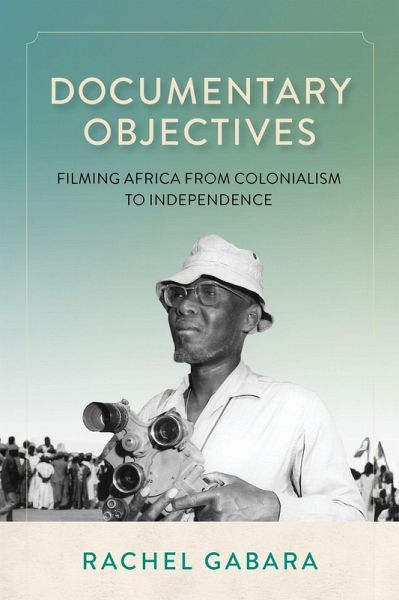
Documentary Objectives
Filming Africa from Colonialism to Independence
Versandkostenfrei!
Erscheint vorauss. 3. Februar 2026
109,99 €
inkl. MwSt.
Weitere Ausgaben:
For over a century, filmmakers have been shooting documentaries in West and Central Africa, a region that included the colonies of French West and Equatorial Africa and now encompasses fourteen nations and nearly 200 million people. Documentary Objectives offers a rich history of these films, until now largely ignored by scholars. Author Rachel Gabara shows the crucial role they played in the development of both European and African cinemas, arguing that their recovery as a nonfiction tradition transforms our understanding of documentary itself. Grounded in extensive archival research, Gabara...
For over a century, filmmakers have been shooting documentaries in West and Central Africa, a region that included the colonies of French West and Equatorial Africa and now encompasses fourteen nations and nearly 200 million people. Documentary Objectives offers a rich history of these films, until now largely ignored by scholars. Author Rachel Gabara shows the crucial role they played in the development of both European and African cinemas, arguing that their recovery as a nonfiction tradition transforms our understanding of documentary itself. Grounded in extensive archival research, Gabara's book traces fifty years of French colonial documentary in sub-Saharan Africa – propaganda-infused travel, hunting, expedition, and ethnographic films – from its beginnings in 1906 to the present. Following independence, African directors reclaimed their cinematic image by challenging outsider claims to authenticity and developing new models for nonfiction. Gabara highlights the nearly forgotten innovations of early decades and analyzes recent works that have attracted a wider audience on the continent and internationally. In a complex network of images and languages and across a dynamic range of styles, African documentarists have remade a global art form rooted in oppression, exoticization, and a simplistic conception of filmic realism. By recounting a history of nonfiction film in which Europe and Africa were inextricably linked, Documentary Objectives brings together traditions that have been both marginalized and kept apart, charting new ground in the disciplines of Film Studies, African Studies, and French and Francophone Studies.



